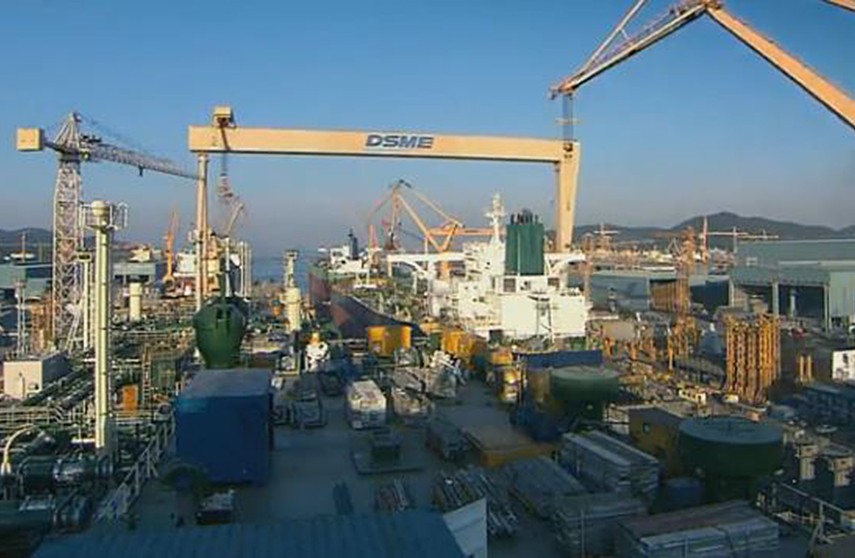DSME workers vote to strike
The imminent strike at Daewoo Shipbuilding and Marine Engineering poses serious legal consequences for owners with vessels under construction at the shipyard.
It was announced last week that workers at Daewoo Shipbuilding and Marine Engineering (DSME) had voted in favour of a strike in response to restructuring plans. While the date of the strike has not yet been decided, owners with vessels under construction at the Korean shipyard should consider the legal consequences of this news under an English law shipbuilding contract.

English law defines a strike as “a simultaneous cessation of work on the part of workmen acting in combination or a concerted refusal of any number of persons who are employed to continue to work or to accept employment”.
The English courts have previously accepted that a concerted refusal by workmen, seeking to secure improvements in their terms and conditions of employment, to work customary shifts amounted to a strike.
Nevertheless, an owner can argue that the strike is within the shipyard’s control and, therefore, not a force majeure event. The shipyard would then have to show that it had acted reasonably in its dealings with its employees.
“Owners with vessels under construction at DSME will want to see that the impact of any industrial action is kept to a minimum so that it does not delay construction and increase costs”
For instance, the situation at DSME could be said to have arisen due to the pressure that the shipyard is currently under by its creditors and the Korean government, which is mostly outside of its control.
Alternatively, it could be said that it has been caused by the shipyard’s management of it financial affairs and its workforce, which is now too large for the shipbuilding contracts it has.
Force majeure clause
Where the shipyard’s performance is delayed by matters which are outside the shipyard’s control, the shipyard may, subject to the terms of the force majeure provisions in the shipbuilding contract, be able to seek an extension to the delivery date from the owner.
It should be noted, however, that the phrase force majeure has no usual or customary meaning under English law and, therefore, the parties to the shipbuilding contract must agree what causes will constitute events of force majeure.
A force majeure clause would cover strikes by the shipyard’s workers if it is included as one of the individual events of force majeure and says, as in the commonly-used Shipbuilders’ Association of Japan (SAJ) standard contract, “strikes, lockouts or other labour disturbances”.
The clause could be broader and describe an event of force majeure in general terms as “causes beyond the yard’s reasonable control” as in BIMCO’s NEWBUILDCON. Such clauses are construed in each case by reference to contract as a whole, and specifically to the words of the force majeure clause.
Typically, a force majeure clause will require the shipyard to give notice of the occurrence of any clause of delay in writing. This must normally be done within 10 days of the event commencing. Notice must also be given when the event ends.
By giving notice at the time of the event, the owner will be in a much better position to investigate the event. At that stage, however, it may not be possible for the shipyard to address the consequences to the delivery date which arise from the event.
Extension of time
When it comes to calculating the extension to the delivery date, the shipbuilding contract may deal with this in one of two ways. It may provide for a day-by-day extension, under which the shipyard is entitled to a postponement of the delivery date for each day of the force majeure event, or it may restrict the extension to the number of days by which performance of the work is actually delayed, often by reference to the critical path.
In the latter case, the shipyard must prove that the force majeure event has caused delay to the delivery date, despite reasonable steps being taken to recapture time that has been lost.
While this will often require the shipyard to demonstrate the actual delay, it is likely to be beneficial to the shipyard – not to mention the owner, where the impact of the force majeure event exceeds the length of the force majeure event.
Undoubtedly, any owners with vessels under construction at DSME will, like the shipyard itself, want to see that the impact of any industrial action is kept to a minimum so that it does not delay construction and increase costs.
Who will bear the consequences of this industrial action, however, will depend on the individual shipbuilding contract and whether the terms of the force majeure clause are complied with.
Fiona Cain is an associate at law firm CGD. She specialises in maritime and construction dispute resolutions for clients in the shipping, offshore oil and gas and energy industries, and has previously been involved in a number of legally and technically complex international arbitrations. She can be contacted on +44 (0)20 8734 2819 or fiona.cain@cdg.co.uk.